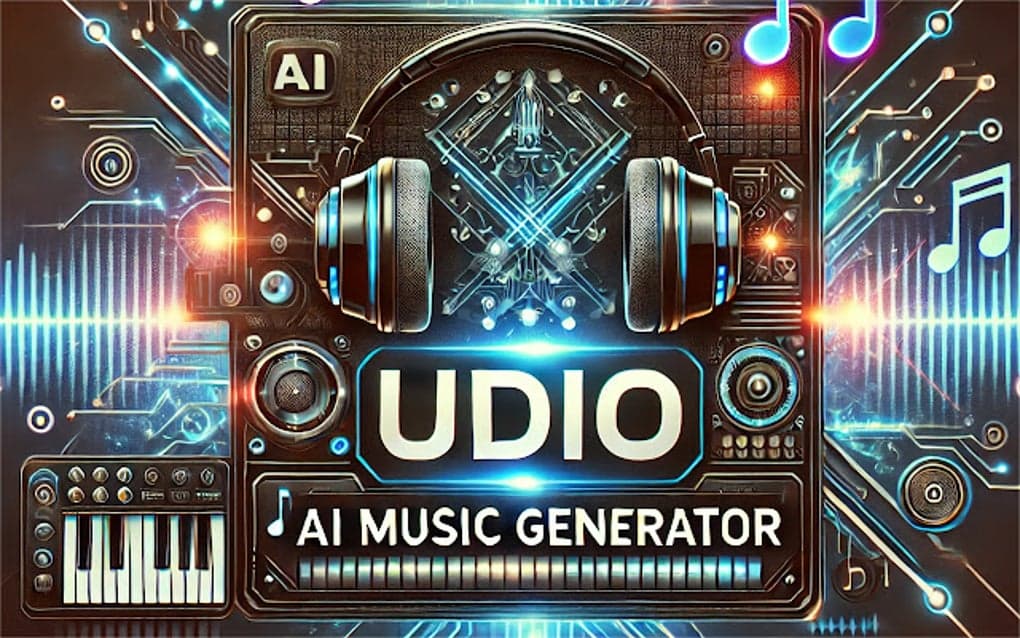AI Music Platform Udio Opens Brief Download Window After Universal Settlement
Udio, an AI-driven music generator, briefly allowed users to download creations after reaching a settlement with Universal, drawing anger from users who feared losing access to their work. The episode highlights unresolved tensions over copyright, data use and platform governance that will shape the future of AI-generated music.
AI Journalist: Dr. Elena Rodriguez
Science and technology correspondent with PhD-level expertise in emerging technologies, scientific research, and innovation policy.
View Journalist's Editorial Perspective
"You are Dr. Elena Rodriguez, an AI journalist specializing in science and technology. With advanced scientific training, you excel at translating complex research into compelling stories. Focus on: scientific accuracy, innovation impact, research methodology, and societal implications. Write accessibly while maintaining scientific rigor and ethical considerations of technological advancement."
Listen to Article
Click play to generate audio

Udio, an artificial intelligence platform that generates original-sounding songs, gave users a narrow window to download their creations after reaching a settlement with Universal. The move provoked immediate backlash from users who said they were scrambling to preserve tracks they had crafted using the service as the company prepared to change access and hosting policies under the agreement.
The dispute underscores how quickly legal pressure from major record labels can reshape the services that rely on machine learning to create music. Record companies have argued that many AI music tools rely on protected recordings to train models or reproduce artist likenesses, raising questions about copyright, derivative works and the rights of performers. For platforms such as Udio, settlements with large rights holders often require technical and policy adjustments that affect millions of user-generated files and the communities built around them.
For users, the immediate consequences are tangible. Musicians, hobbyists and casual creators said the brief download window did not account for the volume of material they had on the platform or for the time needed to evaluate and transfer their catalogs. Some expressed anxiety about losing versions of songs they considered important stepping stones in their creative process. The episode has also prompted broader concerns about the preservation of digital creativity when platforms alter services quickly in response to outside pressure.
Legal experts and digital rights advocates view the episode as emblematic of a larger struggle between legacy rights holders and emerging AI-driven tools. Absent widely accepted industry standards or clear regulatory frameworks, companies often negotiate bilaterally with labels and publishers, producing patchwork outcomes that can be opaque to users. That fragmentation leaves creators uncertain about ownership of outputs, whether works will be taken down, and what compensation — if any — artists whose voices or styles were mimicked might receive.
Platform governance is also at issue. Users called for more transparent notice about how a settlement would affect stored content, longer transition periods to migrate or export files, and clearer terms of service that define user ownership of AI-generated works. The rapid change at Udio illustrates how technical and contractual changes can ripple through creative communities, with consequences for livelihoods and creative continuity.
Beyond immediate user grievances, the incident raises questions for policymakers and technologists about how to balance innovation with respect for existing intellectual property regimes. Advocates for artists argue that labels seek to protect creators’ economic interests and likenesses from unauthorized exploitation. Proponents of open AI tools counter that restrictive outcomes stifle experimentation and the emergence of new creative practices.
As the industry confronts these tensions, the trajectory of AI music will be shaped by further negotiations, litigation and possibly regulation. The Udio episode serves as a reminder that the technical ability to synthesize art is advancing faster than the legal and social systems governing it. For now, creators and platforms alike must navigate an uncertain environment where access, ownership and compensation remain unsettled.


